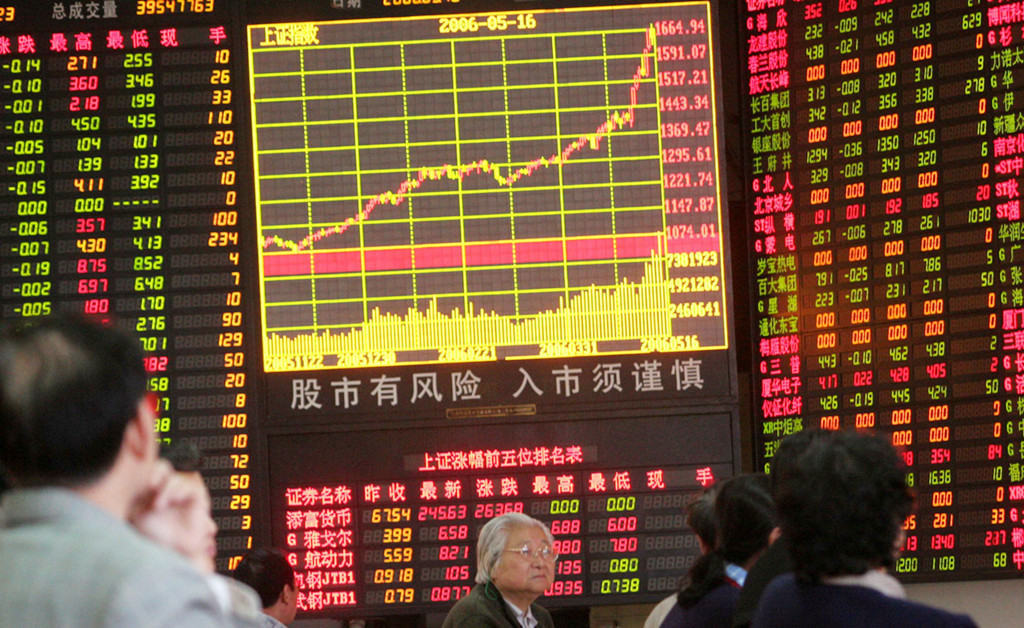
- Indices
- Stocks
How investors are reacting to reforms in China
Do you want to know how to make money from this?
Register for free and get expert advice, access to a training course and webinars.
Key points:
- China has announced its largest stimulus package since the pandemic began, including interest rate cuts and loans to support the stock market.
- Experts believe that the measures taken are insufficient to ensure sustainable long-term growth of the Chinese economy.
- The main challenges facing the Chinese economy are the threat of deflation and the real estate market crisis.
After the initial enthusiasm sparked by the large-scale economic stimulus in China, the largest since the start of the pandemic, foreign investors are increasingly questioning its effectiveness. Despite a record amount of $114 billion, it remains unclear whether this package of measures will serve as the catalyst needed to revive China’s stock market, which has significantly underperformed compared to major global indices throughout the year.
Despite numerous attempts by authorities to stimulate economic growth and increase stock prices, the Chinese stock market continues to stagnate.
China’s authorities aim to support the economy
The large-scale stimulus package announced this week by the Chinese government reflects a new level of urgency with which Beijing is trying to counteract the threat of deflation and real estate market challenges. Sharp interest rate cuts and an unprecedented loan of 800 billion yuan to support the stock market have become key elements of these measures.
The financial markets responded immediately: Chinese stocks soared, and the blue-chip CSI300 index not only recovered all its losses for the year but also reached its highest weekly level since 2022. The yuan also strengthened, hitting a 16-month high against the US dollar.
Chinese officials, speaking on Thursday, reaffirmed their commitment to supporting the economy, announcing additional measures to adjust fiscal and monetary policies. This statement further boosted market optimism.
Despite such a positive reaction, investors note that the measures are primarily aimed at increasing liquidity in financial markets. According to Philip Wool, head of portfolio management at Rayliant Global Advisors, this isn’t enough to ensure a sustainable long-term recovery. Investors expect more decisive actions from the government, particularly measures that stimulate consumer demand.
Will the new measures help China’s national economy?
China’s stock market has shown consistent negative performance in recent years, while global indices have reached record highs. This has led to significant capital outflows: more than a quarter of global funds, according to Copley Fund Research, have completely withdrawn from Chinese assets.
Despite the recent surge in the CSI300 and Hang Seng indices, they still lag far behind their peak levels from February 2021, having lost around 40%. In comparison, Japan’s Nikkei and the U.S. S&P 500 have risen by 24% and 45%, respectively, over the same period.
Gary Tan, a portfolio manager at Allspring Global Investments, expressed doubts that the latest stimulus measures will dramatically change the situation. In his view, a fundamental improvement in deflation forecasts and the real estate market is necessary to attract new investments into China.
The success of these measures will largely depend on the willingness of institutional investors to return to the Chinese market.
China’s economy risks falling short of its 5% growth target due to challenges in the real estate sector and weak consumer demand. Experts note that large-scale fiscal measures aimed at stimulating consumer spending are needed to correct the situation.
Bob Zhang, managing partner at Pine Street Capital, recommends focusing on stocks of companies involved in artificial intelligence, semiconductors, and cloud services. In his opinion, these sectors are undervalued and have growth potential due to global technological trends.
Investors also point out a favorable combination of monetary policy easing in both the U.S. and China. According to Zhang, this combination could create a positive feedback loop in the market.
Do you want to know
How to make money from the news
Register for free and get:
- Expert consultation;
- Access to the training course;
- Opportunity to participate in webinars

